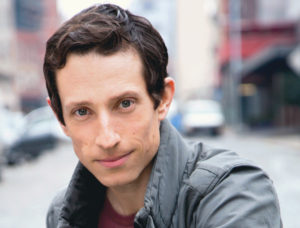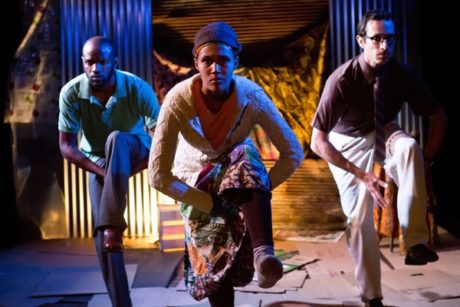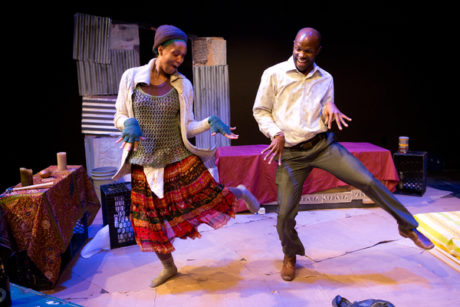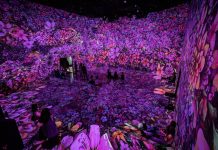When Jonathan David Martin came from New York to DC to be Theater J’s new associate producer in March of last year, he brought with him a backstory as co-artistic director and producer of the Smoke & Mirrors Collective, a theater company based in Brooklyn. He showcased a sample of that company’s work at Theater J as a one-night-only staged reading, Olityelwe (The Forgotten) by Zoey Martinson. Fully staged, the play has had a run off-Broadway, performances at the Edinburgh Festival Fringe, and a tour in South Africa. The staged reading demonstrated that the play deserves a run in DC.

It was the original cast—Martin together with Zoey Martinson and Yusef Miller, who had come down from New York for the event—so the performance was more than a standard staged reading. At times the three were on scripts but more often they were spiritedly gumboot dancing—a rhythmic stomping-slapping-clapping style that originated in the mines of Johannesburg (and that reminded me of the high-energy step-dancing that StepAfrika! does).

The original production was directed by Awoye Timpo; its propulsive pre-recorded sound design was by John Emmett O’Brien, with original music directed by Tuelo Minah; its South African costume designs were by Lara de Bruijn, and the percussive choreography was by Sdudozo Ka-Mbili and Cuereston Burge.
Smoke & Mirrors “creates original works for theater and the web that combine socially relevant themes with an ambitious, multi-disciplinary approach to storytelling.” The company was cofounded by Martin and Actor and Playwright Zoey Martinson, and they both wear co-artistic director and producer hats.
Olityelwe (The Forgotten) was written by Martinson after working as a humanitarian aid worker at a refugee camp in West Africa and then traveling to South Africa to interview people living in the informal settlements around Soweto.

The play creates a vivid world. It is set in Kliptown, a residential district of Soweto. And it tells a powerful story, a personal drama that heartbreakingly puts a human face on Africa’s HIV/AIDS epidemic. Thandi (Martinson), a college graduate living with HIV, is visited in her tiny shack by her dear, longtime friend Mandisi (Miller). She is not well. The remembered joy and laughter between them do not allay her symptoms nor alter her resolve to end her life. In between visits from a well-meaning local official, Jan (Martin), Mandisi tries to change Thandi’s mind.
On the evidence of this staged reading, Olityelwe (The Forgotten) compares in substance, authenticity, and emotional force to Athol Fugard’s Blood Knot, seen recently at Mosaic Theater Company of DC, and Danai Gurira’s Eclipsed, which premiered at Woolly Mammoth Theatre Company.
Somebody needs to pick this one up and bring it back.
Running Time: 80 minutes with no intermission.
Olityelwe (The Forgotten), presented by Smoke & Mirrors Collaborative, was read July 26, 2017, at Theater J – The Edlavitch DCJCC’s Aaron & Cecile Goldman Theater – 1529 16th Street, NW, in Washington, DC.
VIDEO:
Musical Directo Tuelo Minah talks about the original music in Olityelwe (The Forgotten) (formerly titled Ndebele Funeral).
Choreographer Sdudozo Ka-Mbili talks about the gumboot dancing in Olityelwe (The Forgotten) (formerly titled Ndebele Funeral).




